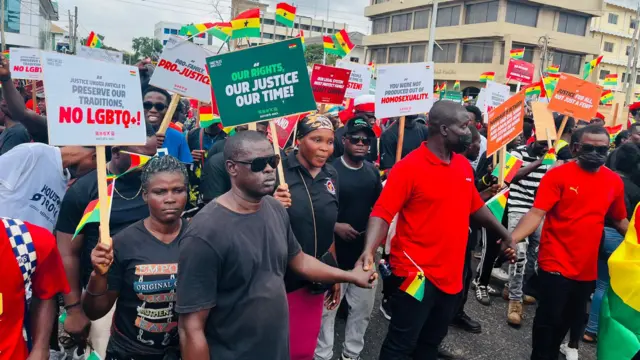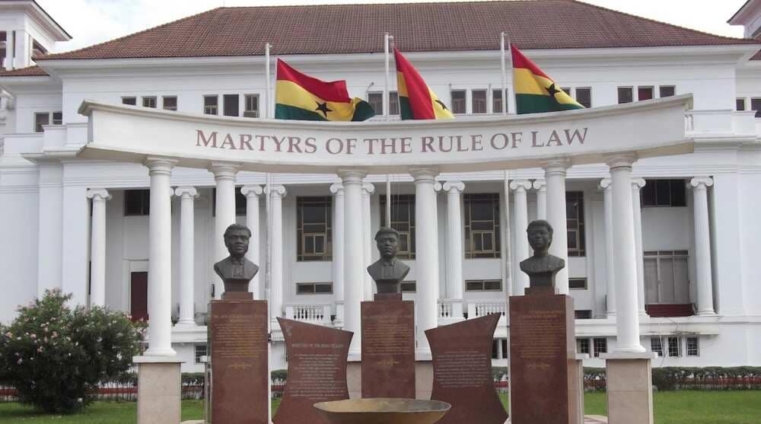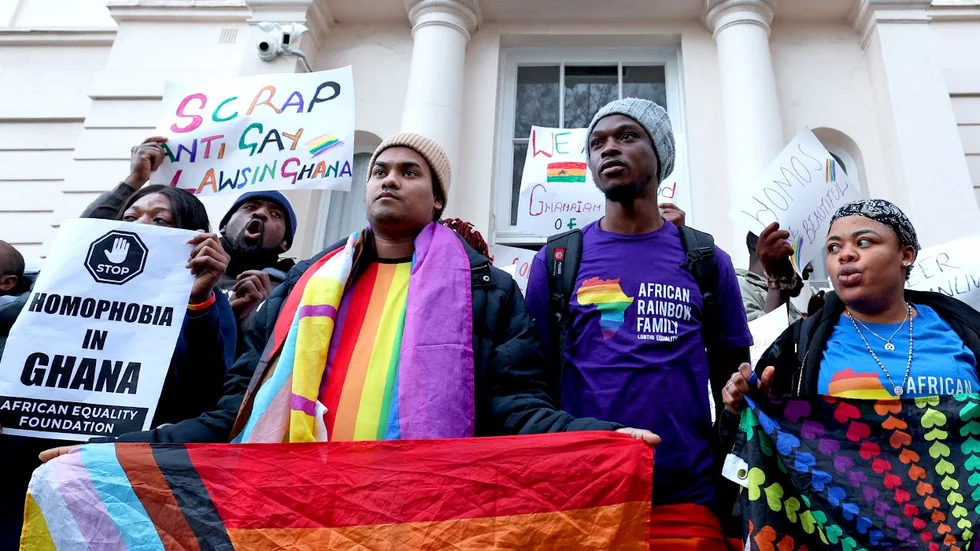Ghana’s Supreme Court has unanimously dismissed a petition challenging the constitutionality of the Human Sexual Rights and Family Values Bill, a controversial piece of legislation aimed at criminalizing LGBTQI-related activities.

The petition, filed by broadcast journalist and lawyer Richard Dela Sky, sought to nullify the legislative process surrounding the bill, arguing that it violated constitutional procedures. A seven-member panel of the Supreme Court, led by Justice Lovelace Avril Johnson, rejected Sky’s claims, affirming that the legislative process adhered to Ghana’s constitutional guidelines.
The Human Sexual Rights and Family Values Bill aims to criminalize activities promoting, funding, or indirectly supporting lesbian, gay, bisexual, transgender, queer, and intersex (LGBTQI) advocacy. Proponents of the bill argue it is necessary to preserve Ghanaian cultural and family values, which they believe are under threat from external influences.

Human rights groups and critics, however, have strongly opposed the bill, calling it a violation of fundamental freedoms, including freedom of expression, association, and equality before the law.
Separate Petition by Amanda Odoi
The case also included a related challenge from equality and inclusion advocate Amanda Odoi. Both Sky and Odoi contended that Parliament failed to meet the constitutional quorum requirements outlined in Articles 102 and 104 of Ghana’s Constitution during the bill’s legislative process.

In its ruling, the Supreme Court dismissed both petitions, emphasizing that the Human Sexual Rights and Family Values Bill has not yet become law. Justice Lovelace Johnson explained that a bill cannot be subjected to judicial review on constitutional grounds until it receives presidential assent and becomes enforceable law.
The ruling underscores the Supreme Court’s position that judicial intervention in legislative processes is premature unless a bill has been formally enacted.
The Human Sexual Rights and Family Values Bill continues to spark intense debate across Ghana, highlighting the growing divide between cultural advocacy and human rights concerns in the country.
Source: assaseradio.com



